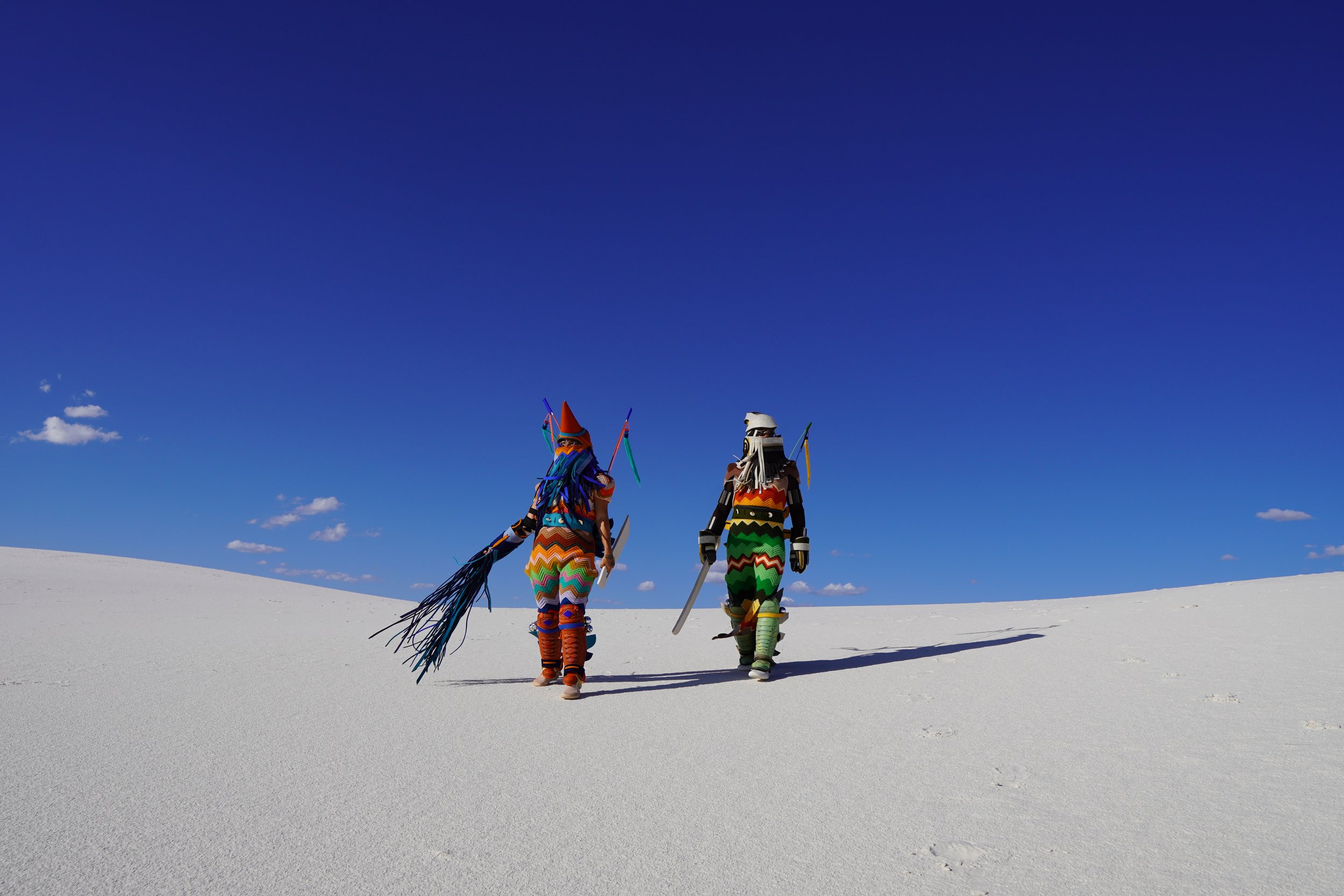Derrick Adams, The Black School & Bryan Lee Jr., Phoebe Boswell, Jesse Chun, Abigail DeVille, Zachary Fabri, Ja’Tovia Gary, Golden, Kordae Henry, Iyapo Repository, Jarrett Key, Yashua Klos, Miguel Luciano, Cannupa Hanska Luger, Zora J Murff, Jordan Nassar, Christie Neptune, Wanda Raimundi Ortiz and Xaviera Simmons
Cannupa Hanska Luger, New Myth, 2022
Somewhere in Advance of Nowhere: Freedom Dreams in Contemporary Art lauds the vital role of artists in dismantling broken systems, envisioning new shared realities, and building future alternatives. Drawing inspiration from Robin D.G. Kelley’s seminal book, Freedom Dreams: The Black Radical Imagination, the exhibition takes up his provocation that “without new visions we don't know what to build, only what to knock down.” From interactive, site-specific installations to meditative photographs, videos, and works on paper, the featured works pose a series of existential questions, including: What are we trying to change? What must be built and what must be knocked down to best advance our efforts? What wisdom can be borrowed from the past in charting new paths forward? And, How do we manifest bold futures envisioned by people of color amidst systemic imbalances in structural power?
In addition to contemplative space in which to consider the above, the eighteen artists and two artist collectives in this exhibition also offer tangible tools to help bridge the gaps between imagined utopias and the world as it actually is. The late Black poet Jayne Cortez described this site of convergence between dreams and reality as, “somewhere in advance of nowhere.” With its focus on unearthing strategies that can be shared between individuals fighting historical oppression and across social movements more broadly, Somewhere in Advance of Nowhere mobilizes our collective imagination to envision a freer society here and now. It prompts visitors to both radically and urgently orient themselves along a spectrum of liberatory practice, from individual expressions of agency to collective social action.
Because the very notion of freedom is undergirded by power relations constructed through the intersecting lenses of race, ethnicity, class, ability, and gender—to name only a few—the dreams articulated here are as distinct as the identities of the artists that envision them. While some artists are concerned with marking the imprints of historical events on our contemporary consciousness and capacities to dream, others articulate altogether new ideologies that empower us to transcend linear patterns of causation and embrace more fluid modes of existence. Regardless of their point of entry, each works to liberate the imagination from the traditional power structures that seek to confine or deradicalize it. And, by democratizing access to the practice of freedom dreaming—one often denied communities of color—Somewhere in Advance of Nowhere ekes out necessary space in which to center our own narratives of resilience through an aesthetic vernacular all our own.
Across the exhibition, the radical imagination takes many forms. Historical archives are refigured into dynamic sites of conscience through which to combat historical erasure and build contemporary representation. Migration is studied not solely as an index of colonial oppression but also as a practice of sustainability and strategy for surviving a precarious future. Joy and leisure are recast as modes of resistance and rights owed us all, and not just luxuries or pastimes of the rich. And meditation and restoration are asserted as vital practices accessible to each of us as we set about the arduous work of getting free. While Somewhere in Advance of Nowhere focuses on freedom dreaming in contemporary art, the diversity of approaches adopted by its artists speaks to the importance of reading art in the context of the social, cultural, and political forces that shape it. The exhibition focuses on art, not as a static object to be consumed but rather as a revolutionary process that—as Kelly asserts—“can and must transform us.”
